Выступление на международной конференции «Иностранные языки сегодня-2010: тенденции и перспективы развития в России»
Сургутский государственный университет ХМАО-Югры. 29 ноября – 1 декабря 2010 г.
Contents
Introduction
“Education is an admirable thing, but it is well to remember
from time to time that nothing that is worth knowing can be taught.”
Oscar Wilde
What is going on at our schools? We are feeding our students with the knowledge they are not hungry of. So what do we hear in return? “We don’t want!” And it’s natural.
Dear colleagues, just a few years ago I came across an educational technology, known as knowledge building workshop and I was shocked to learn that teachers in Europe had been experimenting with the “classroom -as -workshop idea” for over the past twenty-five years already and we knew nothing about it, and most of the teachers still don’t. To my mind it simply happens because instead of teaching English, teachers continue studying textbooks with their students. So there is no need or time for investigating new things. I’m going to speak about what I’ve acquired while creating workshop atmosphere in class, and, as an example, present the workshop conducted on the theme “Pros and cons of modern inventions”.
Though, the workshop model seems to be simple at first sight, is has its strict rules that we should follow. No knowledge transmitting. The teacher has no right to provide any information until students feel the necessity of it, it forces the teacher to think of building up situations for them to feel the lack of knowledge and the lack of information they need. This point causes teachers’ irony; most of them don’t believe that our students would ever feel hungry for knowledge. But only this way we can hope to hear “I want to know how, why and so on.” Furthermore, if the students don’t undergo emotional experience of the gap between the old and new knowledge, it is considered that the workshop hasn’t come off. The gap is to be planned by the teacher by giving controversial ideas. That’s the thing we aren’t used to. Organizing the gap seems to be the main difficulty. During the workshop students should cooperate and evaluate their own work and opinions by comparing and analyzing them with others’. Cooperation and creation are the means of achieving the goals. No marks. The students are astonished and puzzled first, they even demand marks for the work, but when they accept the freedom of creative process, the mark is no longer their goal. So, classrooms aren’t the places where knowledge is transmitted. Instead, “they become working laboratories or studios, where knowledge is created”. [2] Reflective thinking leads to self correction and self evaluation. It takes the tension off the studying process and results in personal development. The workshop model is simple and powerful. Children learn by doing. In fact they don’t need telling about the subject; they need more time to do learning. Teachers learn to take on new roles; we are the authors of the process of learning which is rewarding.
Thanks to the long history and creative contributors, we now have a contemporary version of the workshop-style and different models, that we can choose to our liking, or what suits us and our students’ best. The model I have chosen for my learning-laboratory classroom is described by the teacher of history O. Orlova in her book “The history of the country of the 20th century.” [1]
I stage – Knowledge Hunger Developing
Aim: To develop the feeling of information hunger and the need for more knowledge.
- Master word. Introduction talk with problem solving approach. It should lead students to goal setting. I expect students to set goals for themselves.
- Induction (Induction – the process of reasoning from particular facts or ideas to a general rule or law) – the first task that motivates students working.
The task should actualize personal awareness of the subject and give the opportunity to have more choice: to participate or just watch your fellow students, so this academic freedom makes the process stimulating and fun.
- Creating a product process that is usually based on deconstruction and reconstruction. (Breaking the material into pieces for evaluation and then building or forming new ideas by connecting pieces of information and creating new knowledge to share with the others. Students actualize their knowledge.
- Socializing and sharing. (Drawing, writing exhibitions, performing etc.) Sharing your ideas helps to understand the direction and the way others go, to compare your results with others’, value the ideas and hypotheses.
- Reflective thinking and self correction and self evaluation. Lack of information development. The teacher gives the task that requires new knowledge.
So, during the first stage students fulfill the tasks with the knowledge they have. And experience the lack of it when asked to do a new one.
II stage – Knowledge Building
Aim: To build up new knowledge.
- Researching and investigating new material
- Correction of the former product and building a new version. Team or Individual Work.
- Socializing and sharing. Presenting the product to class.
- General reflection and defining new problems. Self assesement.
Workshop approach is favorable for personal development. While doing reflective thinking for the first time, we discuss the workshop rules:
- Everyone is free to express their personal opinion and has the right to make a mistake.
- Everyone is capable of creative work, and open to discoveries and development.
- Everyone is equal when they win or lose.
- The teacher is a fellow learner, as well as an expert resource and coach.
A defining element of the workshop is choice and freedom; students can choose topics for writing, and books for reading and investigating.
Workshop atmosphere teaches students taking responsibility for their learning process if we agree that everyone must use the class time responsibly, discussions should be interesting and fun, students should come prepared to discuss and share ideas.
Workshops can be 1, 2-4 hours long, for a week or a month, it depends on our personality, background, tastes, and attitudes; our own experiences of a student and a teacher. Moreover, I stick to the approach that while teaching we continue learning ourselves. The result of the workshop style is that it changes the teacher as well as the students. I’ve changed my approach to traditional lessons, it is no longer routine textbook work and the students have become more independent, more creative, they are becoming “intelligent thinkers” [2].
Literature
- О.В. Орлова. История отечества 20 века. 10-11 класс. Методическое пособие. Санкт-Петербург. Изд. Паритет, 2003.
- Harvey Daniels, Marilyn Bizar. Teaching the Best Practice Way: Methods That Matter, 2005.
Language Skills Developing Educational Workshop “Pros and Cons of Modern Inventions”
11 form, 2 hours, Intermediate level.
[carousel cats=3]You can download this slides below the article.
AIM: To prepare students for writing an essay.
- To enrich and broaden pupils outlook on the theme.
- To develop mental abilities by teaching the pupils to compare, analyze, evaluate, and make their own opinion and choice.
- To develop language skills in listening, reading and speaking on the theme.
TASK the students have to set for themselves:
- pros and cons of modern technology
- make a conclusion whether it is a necessity or a threat to our life
- learn reflective thinking
Procedure of the workshop
I stage – Knowledge Hunger Developing (the first lesson)
1. Master’s word: Wonderful inventions have been made in science and technology recently. These advances are changing the lifestyle of millions of people all over the world. In 1932 an English writer, Aldous Huxley, wrote a book called “Brave New World.” In it, he envisaged life six hundred years into future. Later in his life, he said that if he rewrote the book, he would place the same vision only one hundred years into future, because so many of his prophecies had come already true. This is the vision of the future that “Brave New World” describes.
Which aspects…
- have already come true?
- will come true soon?
- might come true some time?
- couldn’t possibly come true ever?
What does the future hold? Text: “Brave New World” Headway Upper-Intermediate. John and Liz Soars, Oxford University Press.
So during our workshop we have to define pros and cons of modern technology, advantages and disadvantages of modern inventions. Decide what good and bad points we have in our life with them and make a conclusion whether it is a necessity or a threat to our life if we are not aware of their dangers. This workshop is aimed to lead you to writing an essay on the theme.
You are divided into 3 groups and there is one English group which has recorded its tasks on the CD.
- Induction
Pros of modern inventions.
T.: Mass Media do a lot to promote high-tech gadgets and new products or new generation of products by advertising them.
a) Imagine, you are a producer of a certain thing and you want it to be sold out as quickly as possible, so your company has to advertise it.
Advertising. Each group performs their drama ads. They speak about pros of the goods. (It can be a home-prepared task.)
T: While watching the ads think whether you will buy the goods advertised or not. Why? (Is it for pleasure? Does it make life easier, more enjoyable? Does it save your time?)
b) Listening task1: (the ad “made” by the English group)
Listen to the radio advertising product interview with an English research scientist. Decide which of the statements are true and which are false, say whether you’ll buy the product or not. Why?
- The “smart pill” is a new drug.
- It’s easy for some people to take the wrong medicine.
- People don’t mind about making mistakes.
- Most people are impressed with the new system for reading labels.
- People can hear personal information with the new system.
- The labels are designed to speak aloud.
- Most people are afraid of new technology.
Group discussion of the products advertised.
T: So, inventions in technology make our life easier, more enjoyable and relaxing. Inventions in medicine make our life longer, don’t they?
3. Creating a product process
a). T: Make up a list of modern inventions and their pros, choose what you can’t live without and explain why. Group work.
Listening task2. (the task “prepared” by the English group)
You will hear five English people talking about the importance of modern inventions. Choose from the list A-D the reason each speaker gives for the importance of the modern invention to him personally. Use the letters only once. There is one extra letter which you do not need to use.
| A | It entertains me. | Speaker 1- |
| B | It guarantees contact. | Speaker 2 – |
| C | It helps my memory. | Speaker 3 – |
| D | It provides an escape. | Speaker 4 – |
| E | It’s removed a pressure. | Speaker 5 – |
| F | It’s always with me. |
T: So, What can’t you live without and why. Use the list of modern inventions and the pros that you’ve made to answer the question.
4. Socializing and sharing.
Students present their lists of inventions and the pros, speak what they can’t live without and why.
5.Reflective thinking and self correction and self evaluation.
Students say what ideas the like best.
II. Knowledge building stage. (the second lesson)
Gap Formation.
T: I have brought something for you. These are the “smart pills” they make everyone very clever. Just drink it with water and you are the cleverest students. Will you? Why not? Express your view point. Should you be so naive as to trust even my words? Shouldn’t you read the instructions and warnings first? Yes, but the same is with all those modern gadgets and inventions that are advertised. What are the drawbacks of modern inventions? Do we always know the drawbacks?
- Researching and investigating new material.
a). Reading Task: You are going to a forum devoted to the problem of the “influence of modern inventions on our health”. Collect factual information on the problem.
- What is wrong with the inventions described in the articles?
- Make up a list of cons of modern inventions given in the articles.
- Analyze the facts and develop your personal attitude to them.
Texts: “Television exposure damages child speech”, “Experiments on animals”, “Leave your car at home’, and “Exploiting the genius of the Genes”, “Computer addicts”.
b).Discussion. Students choose 1-2-3 articles for reading and discussion. Make up a list of cons of the modern inventions given in the articles. Group-work.
2. Correction of the former product and building a new version.
|
№ |
invention |
pros |
Can’t live without/why |
cons |
Your opinion |
|---|---|---|---|---|---|
| 1 | Television | Provides informationGood entertainmentUnites families | Relax after school dayA window into the worldCan learn some professional things | Tells on eyesightDamages speech developmentChildren under 3 mustn’t watch itDevelops addiction | Is not a threat to lifeIs a necessityTime restriction for children |
| 2 |
3. Socializing and sharing.
a) The students present their ideas to the class.
b) The students make up a summery and draw their conclusion.
Teacher: We have the right to know the truth (advantages and disadvantages, weak and strong points) of what we consume. And if the producers present only pros they deprive us of the right to know the truth and make our own choice.
4. General reflection and defining new problems. Self assessment.
Students speak about their emotions; they evaluate themselves and say what they need doing more on the theme.
Teacher: Do you think our workshop has been useful? Why? Will you be able to write an opinion essay on the theme now?
– Some people believe that modern technology provides a better quality of life while others say it can destroy the world. Express your opinion in the essay.
Thank you for being active and creative.
The Language Material Used in the Workshop
- New Headway English Course. Upper-Intermediate. Student’s Book. Liz and john Soars. Oxford University Press, 2002.
- Ideas and Issues. Intermediate. Olivia Lohnston, Mark Farrell. Изд. Титул, Chancerel. 1998.
- First Certificate Practice Tests Plus 2. Diana L. Fried-Booth. Longman.2002.
- Practice Tests 1. FCE. Virginia Evans, Jenny Dooley. Express Publishing. 2000.
![]() Download the texts for this lesson
Download the texts for this lesson
![]() Download the slides for this lesson
Download the slides for this lesson
Some slides as the example…
[carousel cats=4]

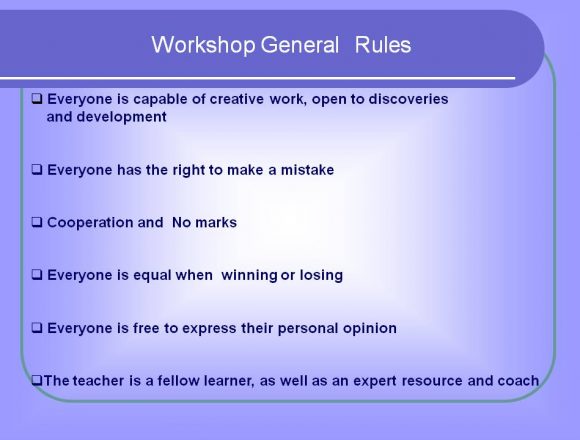
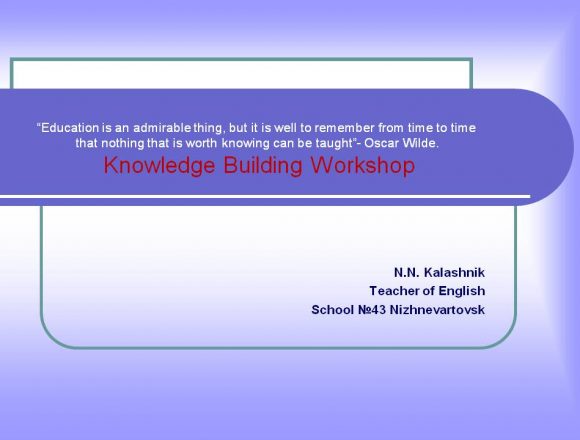
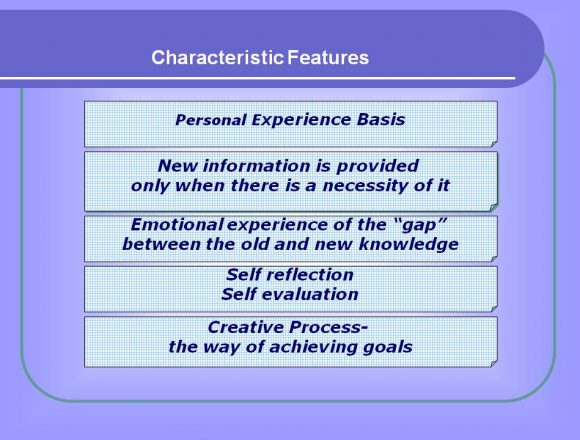
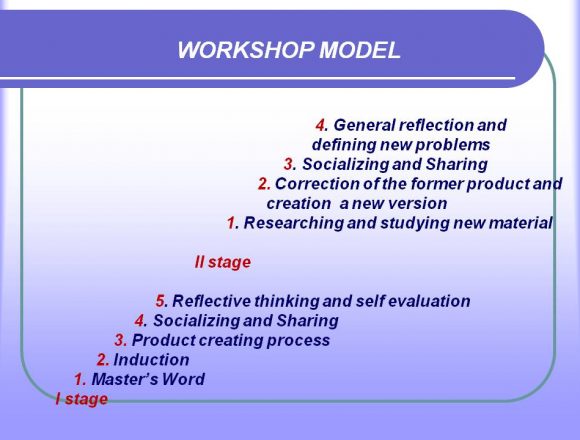



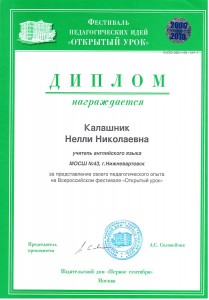
Recent comments